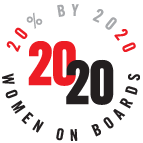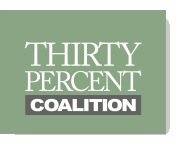Women on Boards: Guardians of Ethics
What difference women on the Weinstein Company board might have made. Eight settlements have been made without action against the perpetrator. An all-male board of a media company now denies it ever heard of something referenced on 30 Rock and the Oscars. We will let you speculate.
Often the case made for gender equality on boards is a financial one. That makes sense — there is a positive correlation between the number of women on a corporate board and its financial performance. However, after years of making this argument, too often the importance of having the perspective and sensitivity of women on boards has been neglected.
Today, we want to feature our allies who focus on bringing gender balance to boards.
Indeed, it’s a good time to highlight the organizations that are working to get more women on corporate boards and take stock of the positive impact that diverse leadership has on the actual workplace.
A lack of diversity on boards is not a problem unique to entertainment. Unfortunately, we see it across industries. According to Women on Boards 2020, women hold just 19.7% of board seats at Fortune 1000 companies — and that’s an improvement from years past. Those percentages get worse when reviewing corporations that don’t make the Fortune 1000.
In the wake of scandal at Uber earlier this year, Ann MacDougall wrote in Time: “Corporate boards are the collective keepers of Big Business’ fiscal and moral compass, and yet they do not reflect our country. Rather, they remain largely populated by older white men.”
The moral compass of an organization has a profound impact on how workers are perceived and treated.
It defines acceptable behavior. Boards without women and people of color are far more likely to turn a blind eye to bad behavior. Robert Reed of the Chicago Tribune shared that “In addition to being morally objectionable, sexual harassment is a big-time corporate governance problem. Board members have a legal and fiduciary obligation to try and stop such harmful activities from occurring or continuing.”
According to Brande Stellings of Catalyst speaking with CNN Money, having women in leadership roles reflects “an environment where women are viewed as leaders, peers, and colleagues, and not prey."
Improving diversity on corporate boards is no small task. We’re happy to see that several organizations are approaching change from different angles.
Women on Boards 2020 creates awareness about the makeup of boards, tracks progress of individual companies through a Gender Diversity Directory, and seeks to “redefine good corporate governance and gender diversity standards and create a cultural imperative for corporate action.”
The Thirty Percent Coalition was formed to “promote gender diversity, including women of color, on corporate boards” and partners with high profile corporations to advocate for diversity.
Women in the Boardroom matches women with corporate board opportunities and helps prepare them to serve. The Forte Foundation is partnering with business schools in the U.S. as part of a global effort to identify and promote women who are interested in becoming eligible to sit on a board.
These are just a few examples of the organizations fighting for change at the top echelons of business leadership. We hope that all-male boards will take heed of the poor examples set by companies like Uber and the Weinstein Company and re-examine their diversity practices. And bonus: companies with diverse boards perform better, so what's the excuse? Either way, we won’t back down.




